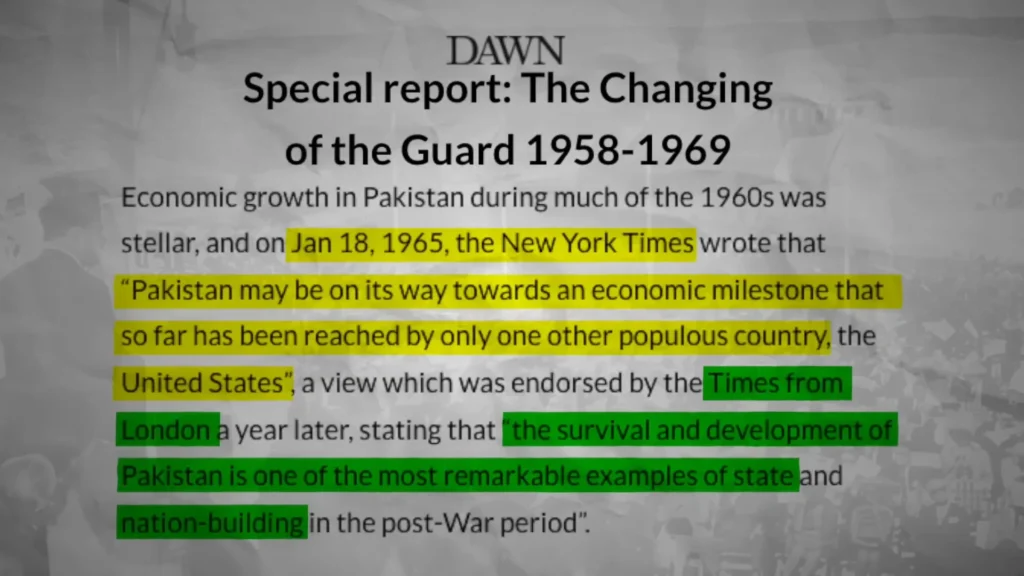The Rise and Fall of Pakistan: A Historical Perspective
Pakistan, once hailed as an economic success story, has undergone a dramatic transformation from a model of development to a nation grappling with political instability and financial challenges. This blog explores the historical milestones that contributed to Pakistan’s initial growth and the subsequent factors that led to its decline, shedding light on why Pakistan imploded.
The Early Years: Foundations of a New Nation
Pakistan was founded on August 14, 1947, emerging from the partition of British India. The early years were marked by the establishment of a constitution and the pursuit of equal rights for all citizens. The aspirations of its founding leaders were captured in various media, including articles in the New York Times, which highlighted Pakistan’s commitment to development and equality. However, understanding why Pakistan imploded requires examining these foundational aspirations closely.
Throughout the 1950s and 1960s, Pakistan was often portrayed as a nation on the rise. The country experienced significant economic milestones, with reports from the London Times celebrating its development as a remarkable success story. The government of President Ayub Khan initiated policies aimed at economic growth, including foreign aid and progressive social reforms, which were lauded internationally. Yet, beneath this facade lay the early signs of the challenges that would later contribute to why Pakistan imploded.

Political Control and Corruption
However, the political landscape began to shift dramatically. By 1958, Pakistan was under the control of unelected elites, leading to corruption and instability. Ayub Khan’s government, despite its initial successes, faced criticism for its authoritarian nature. The political elite’s close ties with American financial institutions further exacerbated issues of governance and accountability, providing key insights into why Pakistan imploded.
In the early 1960s, U.S. aid played a significant role in bolstering Pakistan’s economy, but this growth was often described as artificial. Economic indicators such as GDP growth masked deeper underlying issues, including a lack of inclusive development that would benefit all citizens, highlighting more factors contributing to why Pakistan imploded.
Social Reforms and Cultural Flourishing
Despite the political turmoil, Pakistan saw some progressive social changes during the 1960s. The Muslim Family Law Ordinance was introduced, granting women greater rights in marriage and divorce. This period also marked the beginning of Pakistan’s soft power, with music and television gaining popularity both domestically and internationally. The country even embarked on ambitious projects like a space program and nuclear development. However, the underlying political issues were creating a perfect storm for why Pakistan imploded.
Ayub Khan celebrated the decade of development in 1968, but the promise of democracy began to wane. The elections of 1970, which were supposed to be a turning point, ended in controversy as the Awami League from East Pakistan won a decisive majority, while the ruling elite in West Pakistan sought to undermine this outcome. This refusal to acknowledge the electoral victory was a pivotal moment in understanding why Pakistan imploded.
The Fragmentation of the Nation
The tensions between East and West Pakistan were palpable. The refusal to acknowledge the electoral victory of the Awami League led to widespread discontent and protests. On March 25, 1971, the Pakistani army launched a brutal crackdown in East Pakistan, culminating in a humanitarian crisis that resulted in the independence of Bangladesh. This period marked a significant downturn in Pakistan’s economy, providing critical insights into why Pakistan imploded.
The loss of East Pakistan not only diminished the country’s geographic and economic resources but also created a political vacuum that further destabilized the nation. The economy struggled to sustain itself against rising import costs and trade deficits, illuminating further aspects of why Pakistan imploded.

Emerging Issues: Fundamentalism and Economic Decline
As the 1970s progressed, fundamentalism began to take root in Pakistan’s socio-political fabric. The ideology of “one nation, one religion” gained traction, undermining the country’s diversity and leading to increased sectarian tensions. The banking and insurance sectors became heavily influenced by American financial institutions, further complicating the political landscape. These developments played a significant role in the narrative of why Pakistan imploded.
By the late 1970s, the cumulative effects of political mismanagement, economic downturn, and social upheaval had transformed Pakistan into a nation struggling for stability. The dreams of unity and prosperity began to fade, giving way to a narrative of decline that continues to resonate today and helps explain why Pakistan imploded.
Lessons Learned: The Path Forward
The story of Pakistan serves as a cautionary tale for nations striving for development. It highlights the importance of inclusive governance, the need for political accountability, and the dangers of authoritarianism. As Pakistan continues to navigate its challenges, understanding the lessons from its past is crucial for future progress. Reflecting on why Pakistan imploded can provide valuable insights for others.
For those interested in exploring more about Pakistan’s socio-political landscape and its implications, you can visit Akash Banerjee’s Collection – KadakMerch, which offers insights into socially and politically aware merchandise.
Conclusion
Pakistan’s journey from a promising nation to its current challenges underscores the complexities of governance, economic management, and social cohesion. The interplay of various factors—political, economic, and social—shapes the destiny of nations. As we reflect on Pakistan’s past and explore why Pakistan imploded, we must also look forward, advocating for policies that promote inclusivity, accountability, and resilience in the face of adversity.
